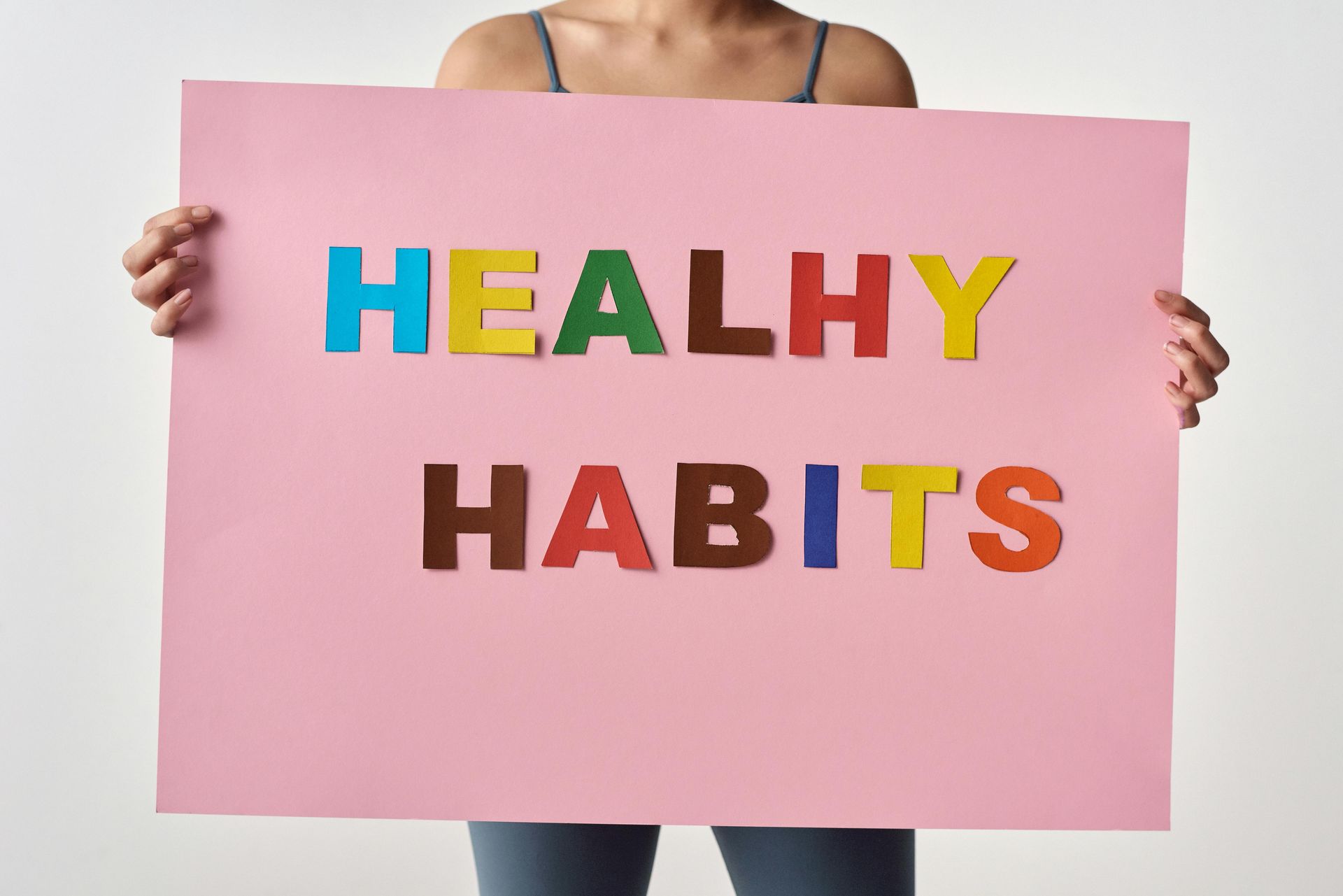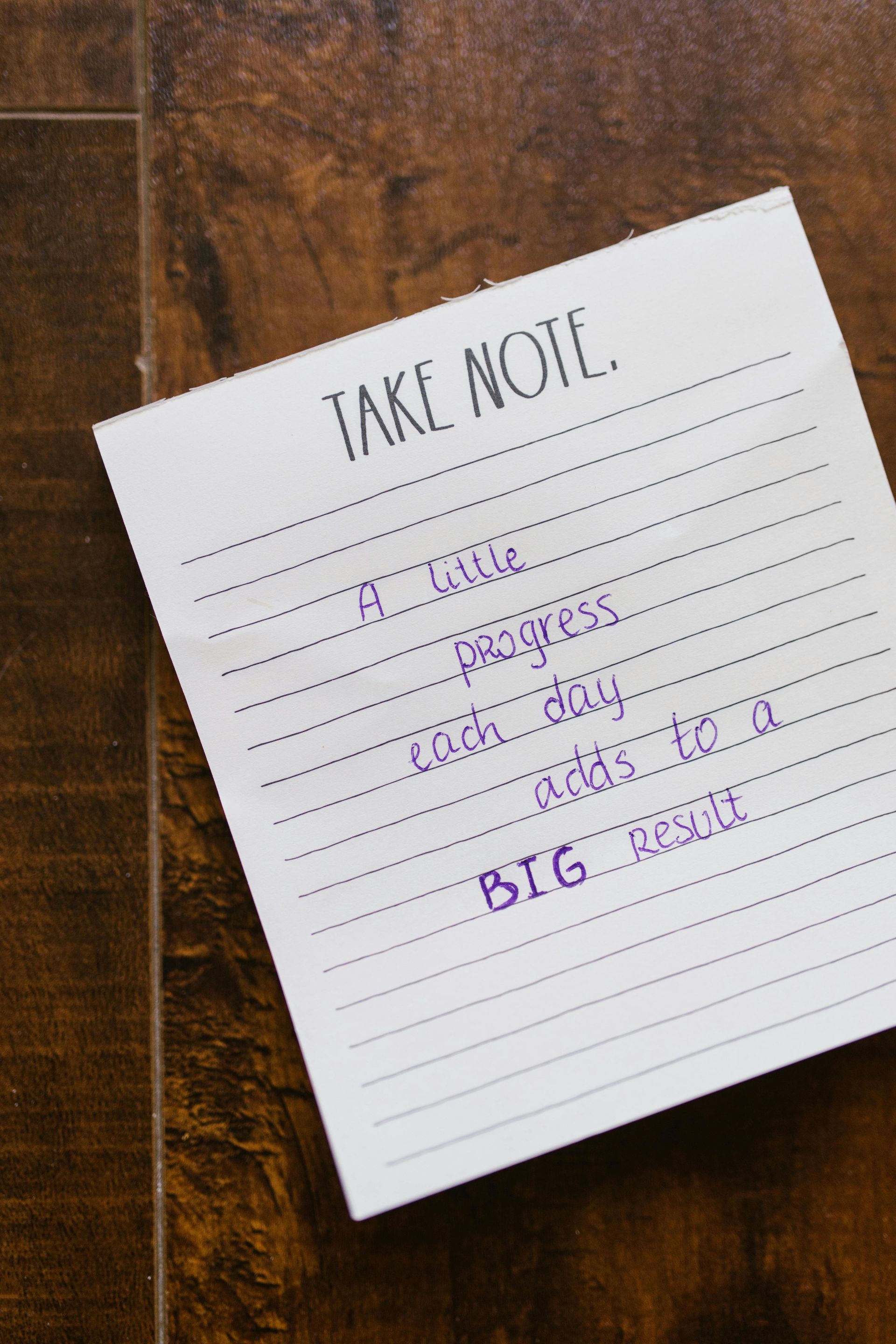Why Change Is Meant to Be Hard
What this means for your health journey

Why Change Is Meant to Be Hard
Change is something we often crave, especially when it comes to our health. We want to feel better, move more, eat well, reduce stress, or break habits that no longer serve us. But the truth is, change is hard. And if you’ve ever found yourself asking “Why can’t I just stick to this?” or “What’s wrong with me?” then you’re not alone.
The answer isn’t that you’re lazy, unmotivated, or weak. It’s that change is biologically and psychologically difficult. As a Health Psychologist, I’ve spent over a decade helping people navigate complex health behaviours. And if there’s one message, I wish everyone knew, it’s this: Struggling with change doesn't mean you're failing. It means you're human.
Let’s unpack why that is and what to do about it.
1. Your Brain Is Wired for Familiarity, Not Growth
The brain’s primary job is to keep us safe and efficient, not necessarily fulfilled or healthy. It does this by conserving energy and relying on habits, routines, and predictability.
When you try to make a change, whether it’s waking earlier, eating differently, or managing stress in new ways, your brain detects uncertainty. Even positive change can trigger the threat response, because it’s unfamiliar.
This is why you might feel resistance, self-doubt, or an urge to revert to old patterns and not because you’re failing, but because your nervous system is trying to protect you from perceived danger.
2. Emotions Play a Bigger Role Than We Realise
Change stirs up emotions such as fear, grief, frustration, vulnerability, even hope. These emotional responses are normal but nobody tells us why.
For example:
- Starting a weight loss journey may bring up years of body shame.
- Changing eating habits may mean saying no to shared social rituals.
- Slowing down may unearth guilt or fear of being seen as unproductive.
Without emotional support, it’s easy to feel overwhelmed. That’s why psychological flexibility and self-compassion are essential parts of any lasting change.
3. Motivation Isn’t Meant to Be Constant
We often expect motivation to carry us all the way through change. But motivation naturally ebbs and flows. What sustains change is consistency, structure, and support. In psychological theory (like the Transtheoretical Model of Change), we recognise that people cycle through stages: precontemplation, contemplation, preparation, action, and maintenance. It’s rarely linear. Setbacks are part of the process, not signs to give up.
(Check you my YouTube video on this: Why change is hard).
4. Real Change Involves Identity Shifts
Perhaps the hardest part of change is letting go of who we’ve been. Creating sustainable healthy habits often requires us to rethink our identity:
- “I’m not someone who exercises” becomes “I’m learning to move in a way that supports me.”
- “I’ve always been a stress eater” becomes “I’m exploring other ways to soothe myself.”
This can be deeply uncomfortable. But it’s also the place where growth begins.
A Personal Reflection
I’ve seen the messiness of change not just in my clinical work, but in my own life too.
Starting Evoking Health, launching my YouTube channel, and even carving out time for self-care as a mother and professional, all of these have brought up discomfort, doubt, and resistance. There were days I questioned my capacity, felt pulled by old habits of overworking, or wanted to wait until things felt “easier.”
But what I’ve learned is that waiting for ease delays growth. What’s helped me move through change is the same thing I share with my clients: small, consistent steps, a lot of self-compassion, and a reminder that I don’t have to get it perfect – I just have to keep showing up.
This isn’t about being endlessly resilient. It’s about being realistic about what change demands of us, and recognising that being uncomfortable is often a sign that we’re on the edge of something meaningful.
So… What Can Help?
If you’re navigating change, here are a few science-backed and compassionate reminders:
✅ Normalise the Struggle
Expect resistance. It doesn’t mean you’re on the wrong path; it means your brain is doing its job.
✅ Break It Down
Start small. Tiny changes create momentum and build self-efficacy. Over time, they rewire the brain.
✅ Focus on Process, Not Perfection
The goal isn’t to change overnight. The goal is to show up, again and again, with curiosity and self-kindness.
✅ Get Support
Whether it’s a psychologist, a peer group, or an accountability partner, change is easier (and more sustainable) with connection.
✅ Celebrate Your Effort
Progress isn’t always visible. Every time you pause, reflect, or choose differently, you’re reinforcing a new pattern.
Final Thoughts
At Evoking Health, I often say to clients: You don’t need to be perfect. You just need to be present with the process. Change is meant to challenge you; not break you. And when we understand the psychology behind it, we stop blaming ourselves and start working with our brains, not against them. If you’re in the messy middle of change, take comfort in knowing that this is normal. You’re exactly where you’re supposed to be. And every hard moment is part of the transformation.
Ready to take the next step in your health journey with kindness and confidence?
Join my community by subscribing to the Evoking Health monthly newsletter for regular insights, practical tips, and support designed to make change feel more doable.
Subscribe here - Free Monthly Newsletter because you don’t have to do this alone.
📺 Watch more on this topic on my YouTube channel: Dr Neesha
share practical, psychology-backed strategies to help you navigate change, manage your mindset, and create habits that last.
Thank you for taking the time to read this blog.
For more information or support, please contact: info@evokinghealth.co.uk
Best Wishes
Dr Neesha Patel
Chartered Health Psychologist, Founder of Evoking Health Ltd









